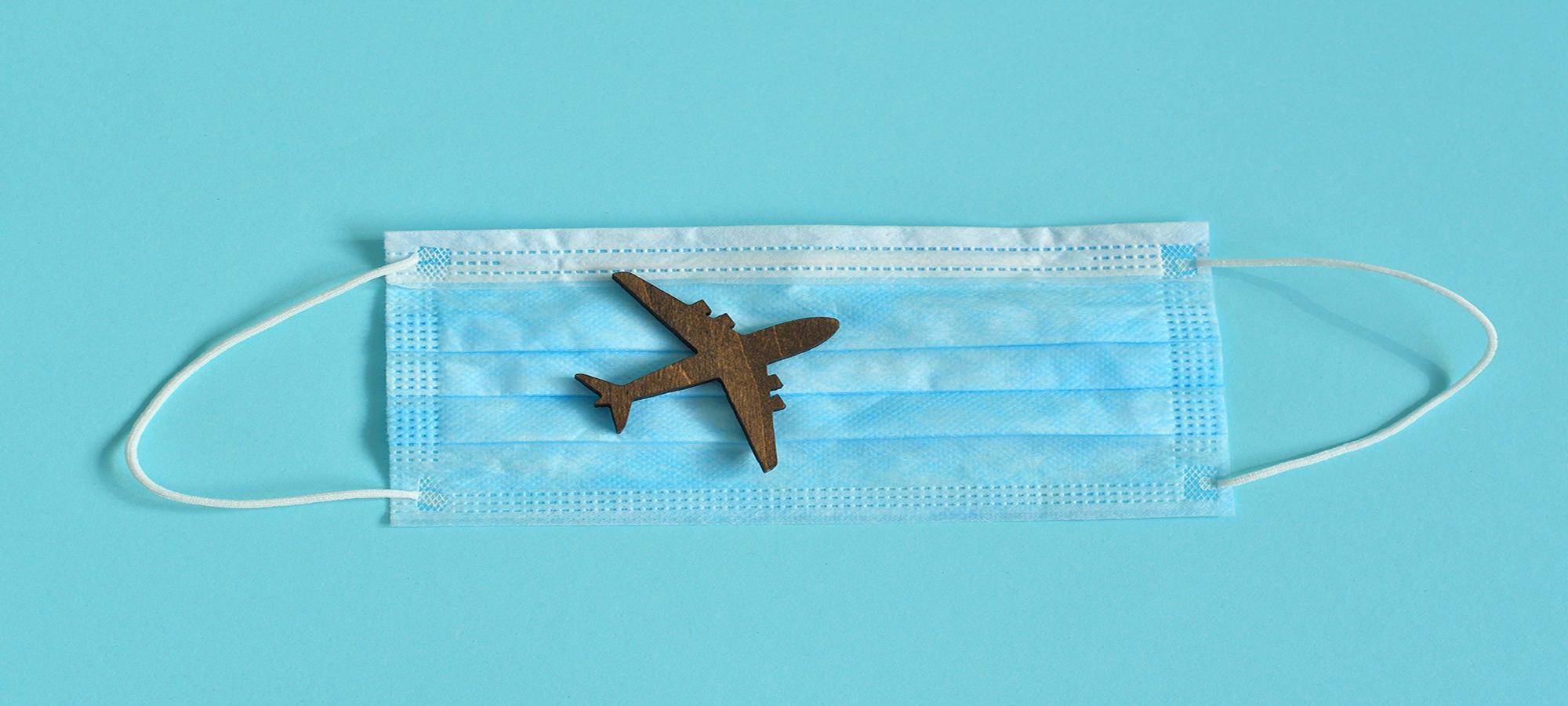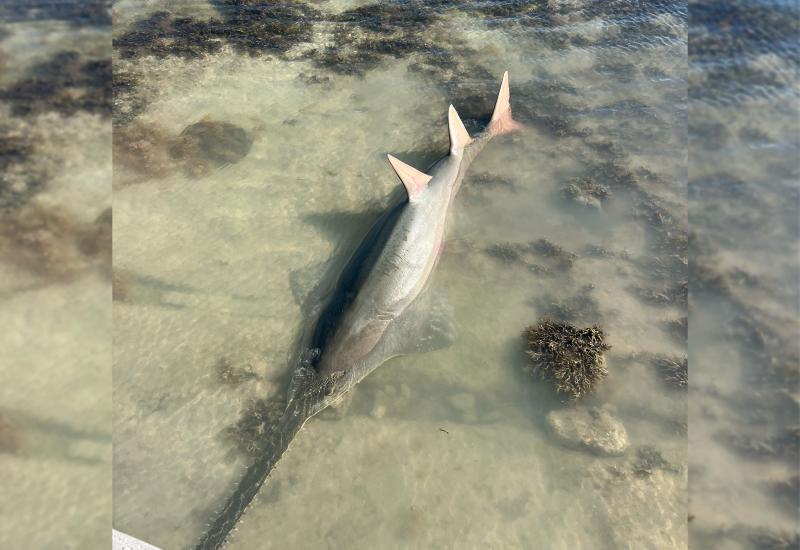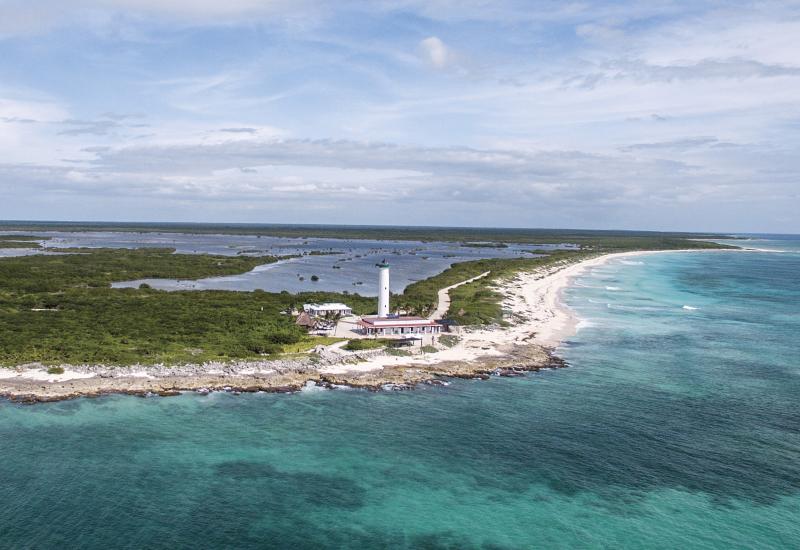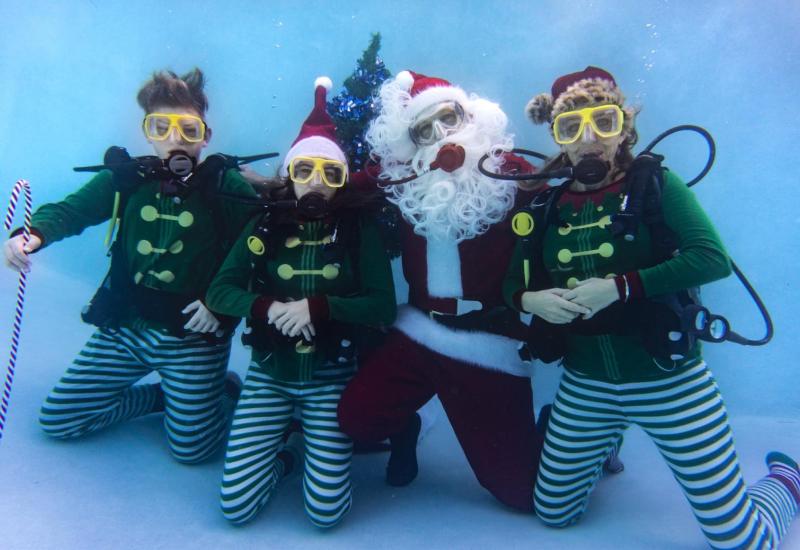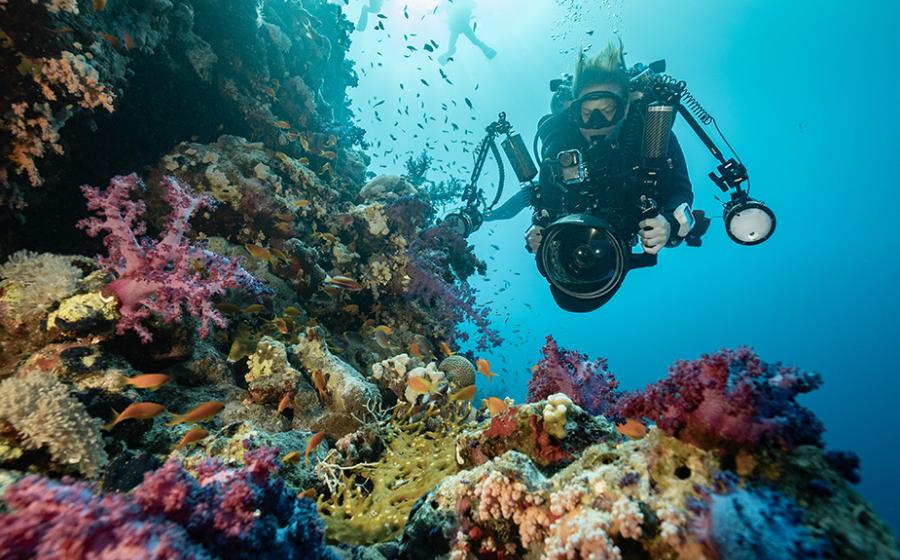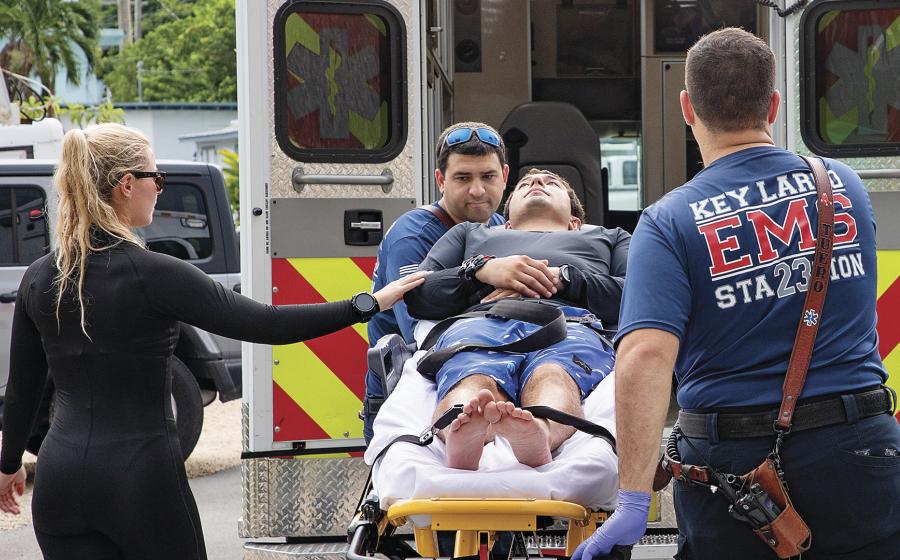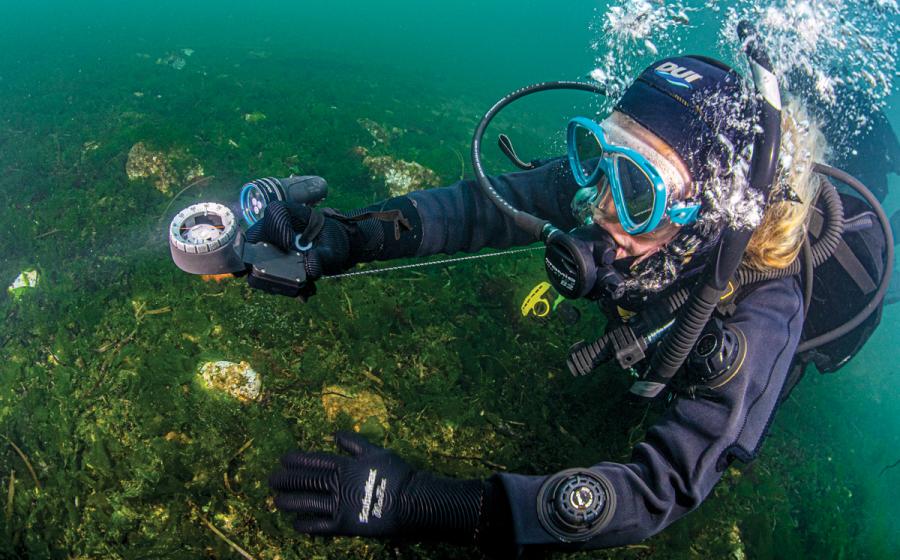Travel Experts’ Advice for Long-Distance Travel During COVID-19
Most divers are opting to #DiveLocal right now, but some are still dreaming ahead.
People are already planning trips to far-flung waters in 2021 and 2022 thanks to “months of pent-up travel” demand, says Cammie Akins, vice president of Caradonna Adventures.
Coronavirus vastly complicates a long-distance trip, which can be a hefty logistical lift even at the simplest of times. As divers consider planning that deferred trip, travel experts weigh in on how to prepare for the new world of travel.
On Land
Personal health, insurance coverage, coronavirus hotspots and constantly evolving travel restrictions should all be top of mind when considering a trip, travel professionals say.
Before starting to research destinations, ask yourself—and consult your doctor—whether you are healthy enough to travel. (For additional questions to ask yourself before traveling, see the “Ask Yourself” box below.)
If you decide to take a trip, research how shifting travel restrictions and coronavirus hotspots will shape your destination options. (Refer to the “Safe Travel Resources” box below for resources that will help you evaluate changing travel conditions.)
Divers Alert Network (DAN) also suggests investigating the “risk mitigation practices” of local dive operators, like gear disinfection and access to medical care. Continue monitoring the situation as your trip approaches.
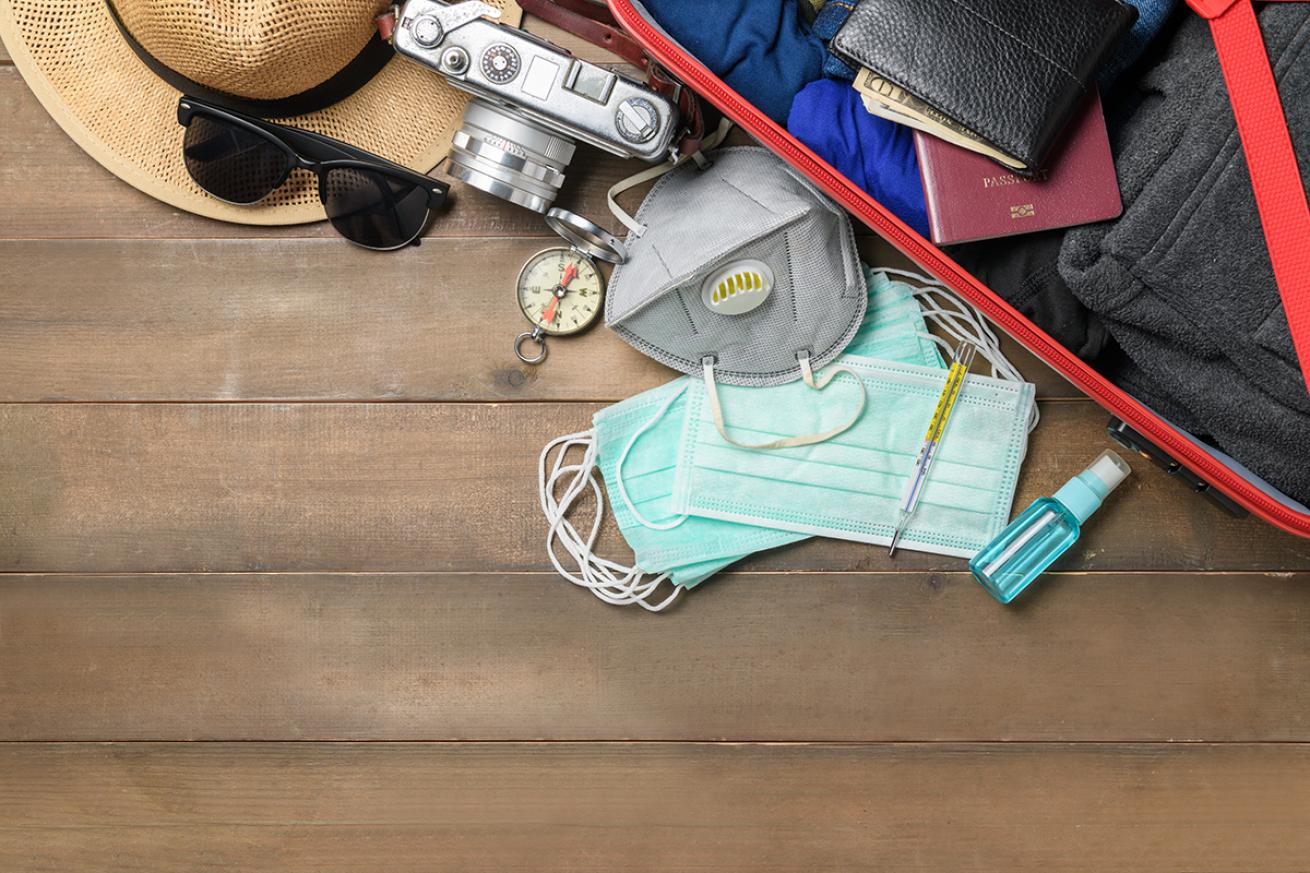
Shutterstock.com/kwanchai.cAdd hand sanitizer and several face masks to your packing list.
If you purchase travel or medical insurance, make sure to read the fine print to ensure it provides the coverage you want, says Wayne Brown, CEO of Aggressor Adventures. Sometimes travelers “buy travel insurance and think that’s going to pay for medical care and evacuation, which is not always the case.”
Even if you have purchased a policy before, take time to review it again. Many providers are shifting coverage terms in response to the pandemic.
In Air
Get ready to pack some extra snacks, arrive at the airport early and sleep in your mask.
You should expect to see health screenings like temperature checks before the flight, as well as social distancing from check-in to boarding, says Perry Flint, head of corporate communications for the Americas office of the International Air Transport Association.
Though precautions like temperature testing are fast, “it’s not a quick experience when there's 1,000 people lined up to have it done,” he says. Build in time for it.
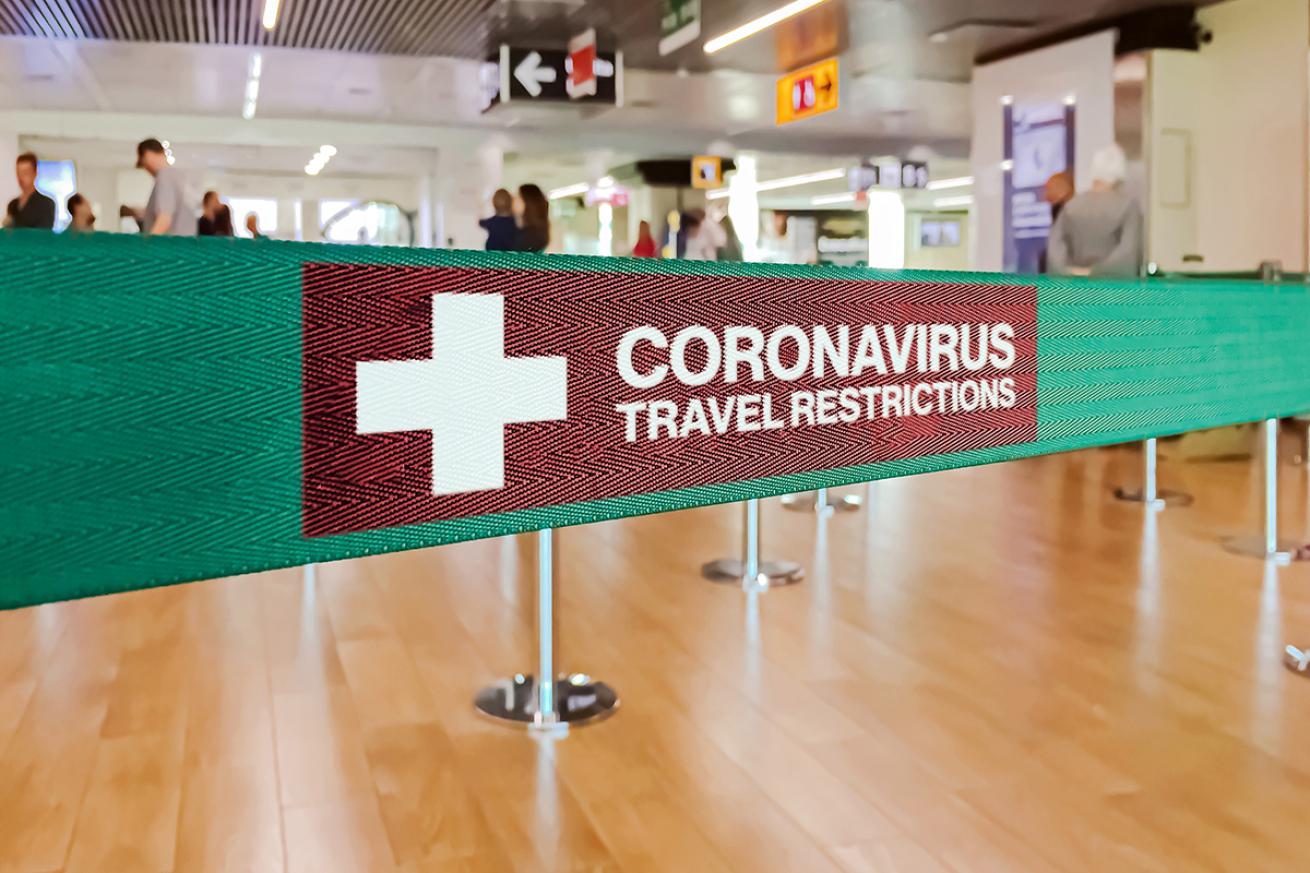
Shutterstock.com/rarrarorroPublic health precautions at airports may slow down getting through check-in, security and boarding.
Masks are mandatory on flights at all times except when eating or drinking. Food service will continue on long international flights, says Flint, but many airlines are still searching for the right balance of providing amenities and limiting face-to-face interactions. Bringing snacks and personal entertainment devices with you can further reduce interactions with staff and communal surfaces.
Flint advises staying in contact with your airline for the most up-to-date information regarding travel restrictions and in-flight safety recommendations as it pertains to your trip. And, above all else, “do not travel when you feel sick.”
At Sea
Social distancing is “not practical 100 percent of the time” on a liveaboard, says Aggressor’s Brown. The adventure company will facilitate it as much as possible (deeply sanitizing the boat and serving meals outside when conditions allow), and divers can help (try hanging back if the dive deck is getting crowded). But at the end of the day, divers will have to trust their fellow passengers are also traveling responsibly.
Masks can mitigate the spread of coronavirus in enclosed spaces like a yacht. Brown says Aggressor liveaboards will follow local government guidance as to whether or not masks are required, but passengers are welcome to wear them at all times. Consider packing extras.
Give “a thought to traveling with more of your friends and family” or with your local dive shop, suggests Akins, as this gives you people with whom to dine, chat and gear up while observing social distancing from other households onboard.
Ask Yourself
- Is travel safe, responsible and permitted between my home and the destination?
- Would a 14-day quarantine be required at the start or end of the trip? Would my work and family life accommodate that?
- Would I want or need to get tested upon my return? Is that possible where I live?
- Will business closures at my destination mean I need to bring extra supplies like hand sanitizer, snacks and water?
- What health services are available at my destination? Does my medical insurance cover illness abroad, or will I need additional coverage?
- What happens if I cannot fly home on my initially scheduled date because of a border closing or falling ill?
- Am I comfortable renting dive gear, or should I plan to pack my own? If that means using a larger suitcase, am I comfortable going through baggage check-in and collection at the airport?
For additional travel questions and considerations, review the Centers for Disease Control's coronavirus considerations for travel in the U.S.
Safe Travel Resources
- COVID-19 FAQ search tool: COVID19.State.gov
- COVID-19 travel restrictions and coronavirus statistics: COVID19.State.gov
- Register your trip with the Department of State so you can be contacted and assisted during a crisis: Step.State.gov
- General travel advisories and embassy locations: TravelMaps.State.gov/TSGMap
- Coronavirus updates for scuba divers: ScubaDiving.com/scuba-diving-coronavirus
- Country-level diving restrictions: Travel.PADI.com/scuba-diving-after-coronavirus-world-map
- Coronavirus precautions and health information for divers: DAN.org/COVID-19
Related:

